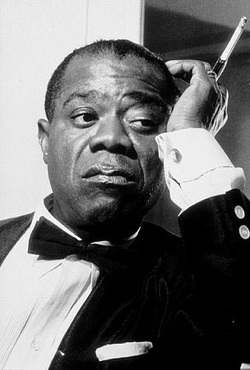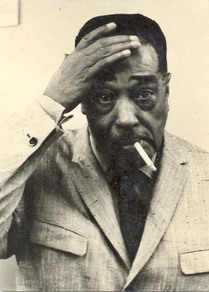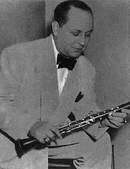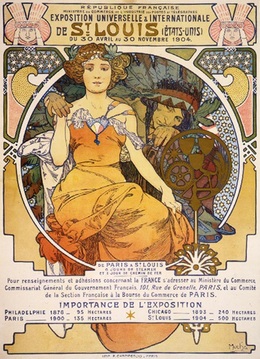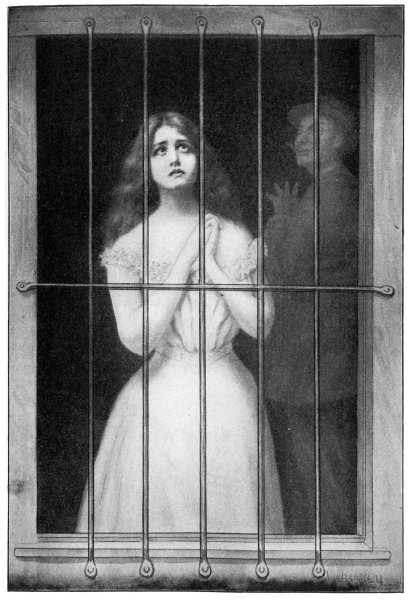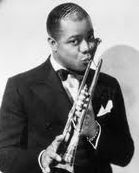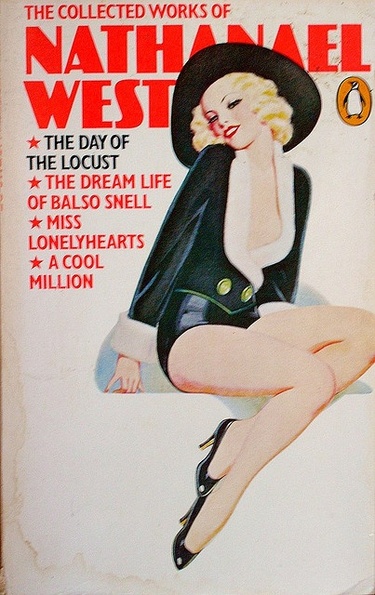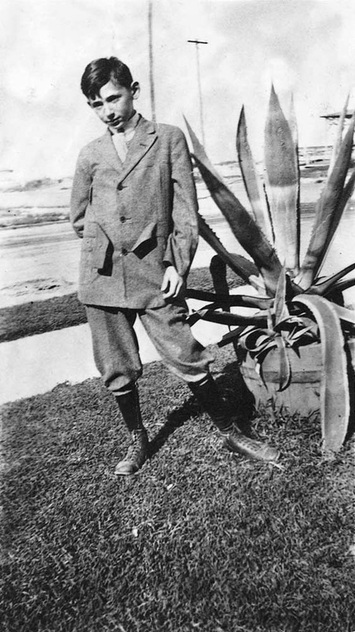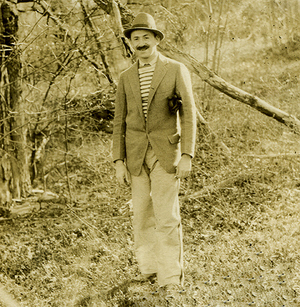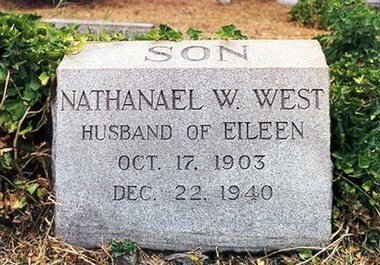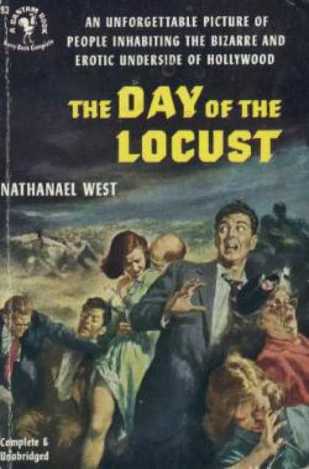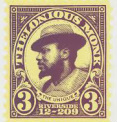|
17 August 2013
A Cool Million (conclusion)
(from the big cardboard box of past programs) A Museum of American Horrors
|
One element of Chief Israel Satinpenny's tirade against the paleface turns upon almost legendary Yankee Ingenuity, here displayed in production of kitsch: "clever cigarette lighters . . . superb fountain pens . . . leatherette satchels . . . " The word "kitsch" (defined by the OED as objects "characterized by worthless pretentiousness") was not yet entirely incorporated into English, but the concept was familiar. There is kitsch in the interior decorations of Wu Fong's houses, and in the purchase of the Pitkin homestead so that it may be placed on display in a Fifth Avenue shop window. Satinpenny's complaint is closer to the original German sense, "trash;" the word has gathered a measure of "liberal tolerance" over time; today, Keane-eyed paintings summon a smile rather than a fire-axe.
Horatio Alger is a literary manifestation of kitsch, and though an object of scorn and derisive laughter even before his death in 1899, there lingers a pernicious influence for those who read without care, without taste, without critical acumen: Alger reduces the expectations a reader might bring to the project of reading a novel. Alger is only a symptom: if the basic Algerian plotline is now outmoded, the simpleminded novel is far from extinct, and mainstream, mindless, sentimental entertainment has been gussied up considerably with sex and violence. A Cool Million unfolds blandly, matter-of-factly (a technique West might have honed with Hammett): hard-boiled Alger. The absence of sentimentality curiously makes Lem more memorable than any of the interchangeable Algerian heroes. |
|
3 August 2013
from the big cardboard box of past programs
A Cool Million (Part four) |
Marginalia
[1] The situation with which A Cool Million opens, a widow threatened with eviction, is familiar to all, chiefly through parody. I can not say for certain that I have ever seen the device "legitimately" employed, and though I dimly recall a silent screen scene presenting the gist of it, by that time (I may have been ten) melodrama had been undermined by comedy. Lawyer Slemp assumes some of the bestial qualities of the melodramatic villain, but Squire Joshua Bird is moved to evict because of idle greed. Lem will be tossed between the greedy and the bully for the rest of the novel. [2] Strong arm methods are employed in force: by the police, the riot squad of International conspiracy, or agents of Wu Fong (a most successful businessman). There is also an Indian attack. You will notice such brutality proves successful. [3] Fraud, or The Phoney —: hat tip to Holden Caulfield, who might be usefully compared to any Algerian hero. [4] The confidence man has a special place in American literature (the term itself is American-born): there's Herman Melville's novel, the King and the Duke of Huckleberry Finn, the comic persona of W. C. Fields, the travelling salesman, Elmer Gantry, the shady enterprises of Hope and Crosby in the Road pictures. The first criminal Lem encounters, Mr Wellington Mape, a pickpocket, practices what might be called the most intimate form of theft, but it is the meticulous presentation of the Glim Drop that is most arresting. [5] The care West lavishes on the interiors and costumes of Wu Fong's All American Whorehouse (notably inspired by a Hearst campaign to "buy American") shows that style can cover a multitude of sins. The pursuit of the quaint initiates Lem's dismantling; the collection of kitsch in the Museum of American Horrors: another perspective on the "fashions" of A Cool Million. |
|
27 July 2013
from the big cardboard box of past programs
A Cool Million (part three) "Sweet are the uses of adversity." Conflict, they'll tell you in Writing 101, is the essence of narrative. Plot, or the momentum of the tale, demands it; it displays character; it offers variety as well as specifics. The travels of Odysseus, the troubles of Oliver Twist (each, in its way a story about Home) present triumph over adversity; other protagonists are not so fortunate. The uses of adversity are nowhere more evident than in the daily Soap Opera, yet even the most extravagant fictions of Soap Opera are tearlessly mild next to the misfortunes of Lemuel Pitkin, who bears the scars of his dismantling.
Lem remains, almost stubbornly, the Innocent Victim throughout. The "Innocent Abroad" as a satiric format has long and good standing (Pitkin's namesake, Gulliver; Twain's Huck Finn): but I don't think any Innocent is as roughly handled as Lem Pitkin. Through the course of the novel, only Shagpoke Whipple undergoes a change in outlook. Besides Mrs Pitkin; Betty Prail (the other Innocent); and Chief Jake, who alone among the people Lem meets tries to help him, the other people we meet are, for once and all, cheats and charlatans and bullies. By 1934, grumbling about Wall Street fraud was almost a national pastime, but it dates back to before the War Between the States. ("Bartleby" was published with the subtitle "a story of Wall Street," and even then [1853] it would have been possible to find ironic comedy in a Wall Street lawyer trying to do the right thing; one of the Snopes children was named Wall Street Panic Snopes.) But the confidence trickster was an established figure in the American scene: cheating was as American (and simple) as apple pie. The spirit of fraud is emblazoned in the nickname for Connecticut ("the Nutmeg State") recalling the Yankee |
Ingenuity of the Connecticut salesman who made a fortune selling false nutmegs, in reality mere bits of wood. At the St Louis exhibition of 1904, an enterprising merchant saw his chance to sell wooden nutmegs at a nickel a piece. When he ran out of wooden nutmegs, he sold real ones, without informing the public, and still made a profit at a nickel a piece.
West's fortunate foray into fraud and forgery, which provided him college experience (he did not display much interest in a college education), can be seen, in retrospect, as displaying his early comprehension of the nature of American ethics. The story of his fixing up his transcripts to get ahead is often cited, but I am not satisfied it is entirely true: it is exactly the kind of story West loved to tell about himself, which often turned upon his laziness and physical incompetence. Nevertheless, it holds great thematic importance for his fiction.
|
Fundraising begins: "As I Please" start time 6AM.
A Cool Million Part Three continues at 7.
A Cool Million Part Three continues at 7.
A Cool Million was first broadcast in Spring, 2005.
Barring the complete collapse of WBAI FM, to be continued . . .
Barring the complete collapse of WBAI FM, to be continued . . .
The fourth of July weekend marks the start of my 34th year on air at WBAI.
Thanks for listening.
Thanks for listening.

